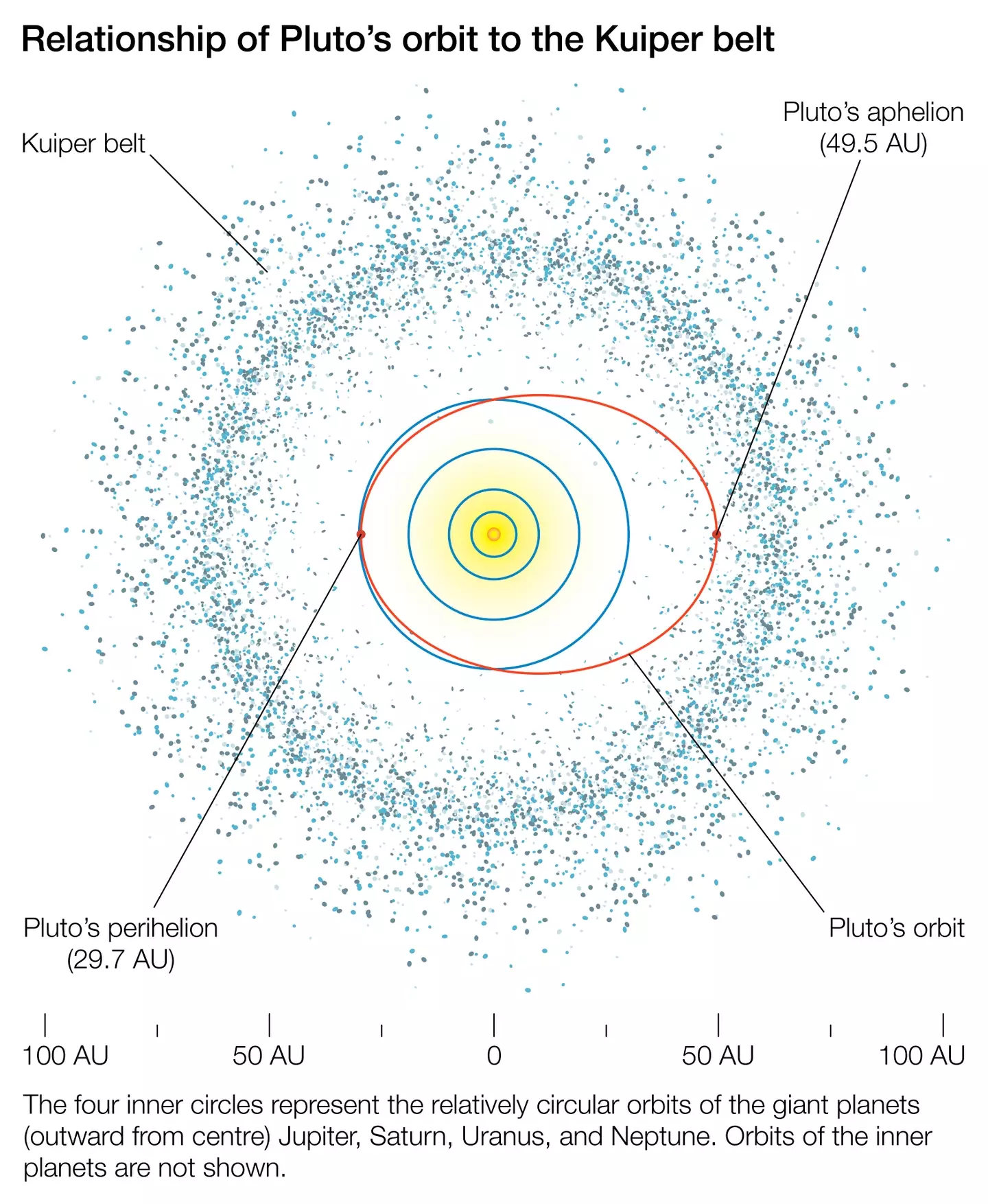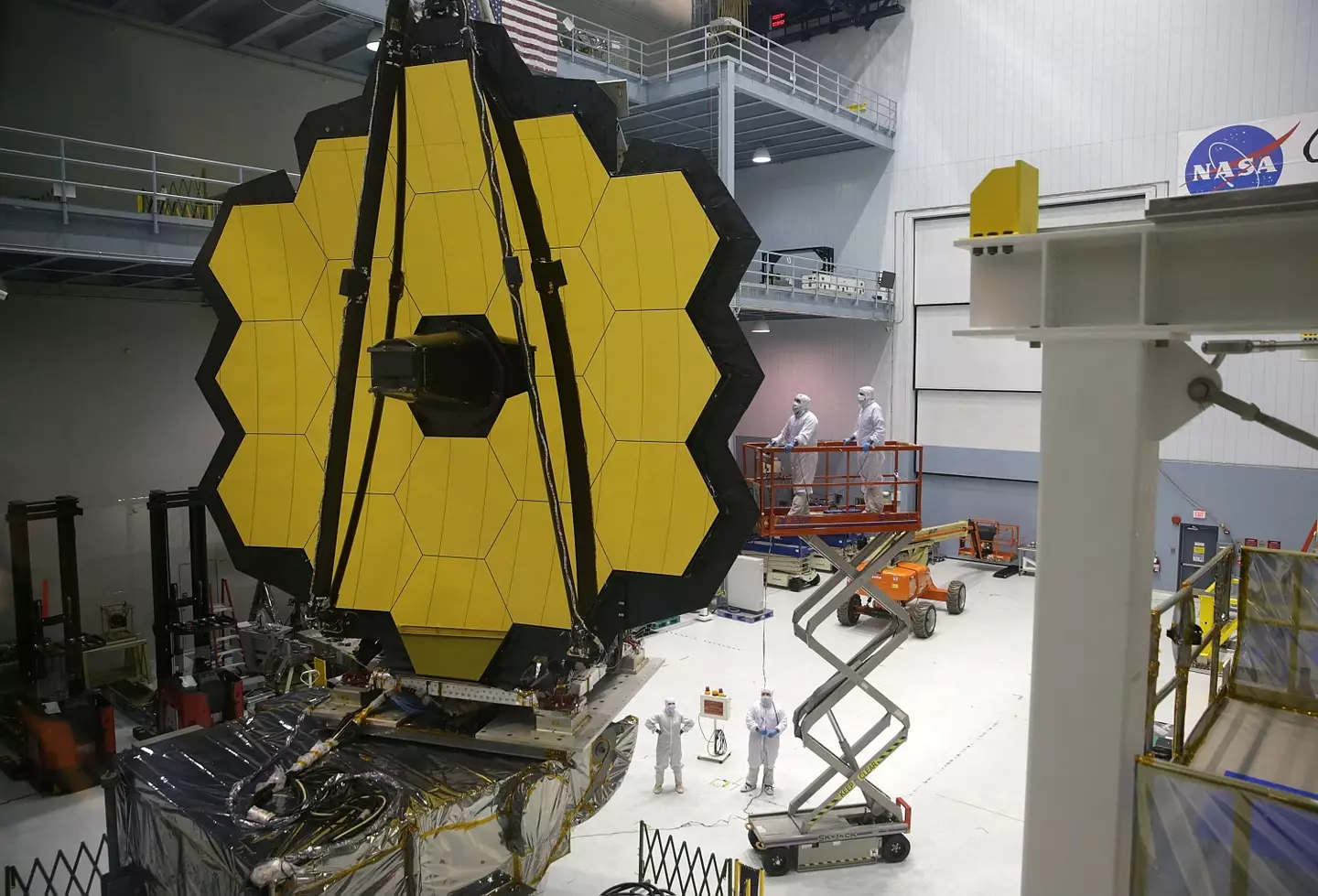
Just beyond the orbit of Neptune, the eighth and final planet from the Sun now that Pluto doesn't count, lies a ring of frozen objects.
This is known as the Kuiper belt, essentially a big disc in our outer solar system which is 20 times as wide and could have up to 200 times the mass of the asteroid belt which occupies the space between Mars and Jupiter.
It mostly contains smaller bodies from when our solar system was first created, much like our asteroid belt, but while the asteroids are mostly made of rocks and metals the objects in the Kuiper belt mostly comprise of frozen substances such as methane, ammonia and water.
Advert
Also part of the Kuiper belt is Pluto, a dwarf planet which used to be classed as a regular planet until experts decided it no longer met the criteria.
It's pretty simple, at the centre of our solar system is our Sun, then four planets, then an asteroid belt, then four planets, then the Kuiper belt.

As for what's been discovered in there, thanks to the incredible spotting power of the James Webb space telescope we've been taking a look at some of these frozen objects in space.
A new study published in scientific journal Icarus explained that using the power of the telescope experts were able to discover that these dead, frozen things on the edge of our solar system are not quite as dead as we previously thought.
The telescope, which orbits a million miles from Earth, looked at dwarf planets Eris (which is smaller than Pluto but has more mass) and Makemake (pronounced mah-kee-mah-kee after a Rapanui fertility goddess) which are between four and six billion (with a 'b') miles away from Earth.
The telescope looked at frozen methane on the surface of these dwarf planets and found they'd recently been 'cooked up' as study lead Dr Christopher Glein of the Southwest Research Institute put it.

What that means is that there could be hotter interiors to the planets which could propel liquids or gas to the frozen surface.
That could even potentially mean the dwarf planets in the Kuiper belt may have oceans beneath the surface, which wouldn't be unheard of as Jupiter's moon Europa has just such a feature.
These objects once previously thought dead, frozen and empty could in fact be 'living' dwarf planets with activity going on.
Of course being so far away there's not much we can do about that right now beyond having a look.
Topics: NASA, Science, Space, Technology, James Webb Space Telescope